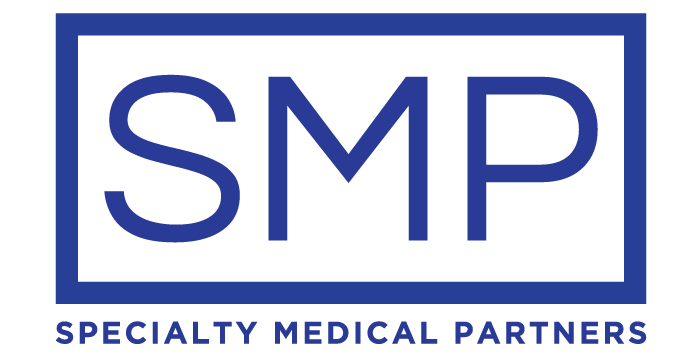Insurance for Canadian Physicians
Physicians are entrusted to safeguard the well-being of their patients. While they focus on helping others, it is vital that MDs protect their own peace of mind and their practices through adequate insurance coverage. Normally you wouldn’t start a blog post with a series of caveats, but I think it’s warranted since this area is so complex.
Caveats:
(a) I am not a certified financial advisor or insurance expert. These are my opinions based on my experience and learning from my mentors and colleagues over the years.
(b) Insurance needs are extremely variable depending on your risk tolerance; ultimately, you want enough coverage to be able to sleep at night, without wasting money on excessive policies and premiums by being ‘over-insured’.
(c) You need to re-evaluate your insurance needs after each major change in your business or life (e.g. new practice, kids are born).
Caveats:
(a) I am not a certified financial advisor or insurance expert. These are my opinions based on my experience and learning from my mentors and colleagues over the years.
(b) Insurance needs are extremely variable depending on your risk tolerance; ultimately, you want enough coverage to be able to sleep at night, without wasting money on excessive policies and premiums by being ‘over-insured’.
(c) You need to re-evaluate your insurance needs after each major change in your business or life (e.g. new practice, kids are born).

(d) Becoming ‘self-insured’: Hopefully, one day you will have enough money saved and accessible that if you were to become disabled, you could still afford your day-to-day expenses long-term, and possibly the higher costs of living with a disability. At this point, you can cancel your disability insurance. For life insurance, you may choose to not renew term life insurance when your nest-egg is large enough to cover the existing and future liabilities for you and your dependents.
(e) The following advice relate to your career as a Canadian physician, especially those that run their own office; other forms of coverage like home, auto, travel, and mortgage insurance are not included. Enough with the caveats. I divide insurance into 3 categories: Must Haves, Seriously Consider depending on your situation, and Somewhat Optional.
Must Haves:
1. Medical Liability: Insurance for ‘malpractice’ goes without saying, since it is mandatory for employment. Nearly every Canadian physician is covered by Canadian Medical Protective Association (CMPA) at standard rates depending on their specialty and province.
2. Disability: Arguably the single most important coverage, and deserves its own separate blog post (along with an explanation of the the best ‘riders’ for disability insurance). This policy provides income while recovering from illness.
3. General Liability: Similar to other small businesses, this insurance offers coverage for liability if someone is injured on the premises, like a patient slipping in the waiting room.
4. Property: Particularly if you own valuable equipment for testing or imaging, property insurance is useful to protect the contents of the office.
Seriously Consider:
1. Life: In general, life insurance is only required if you have dependents. If you are single, child-free and your immediate family is well provided for, term life insurance is probably not necessary. If you are responsible for the financial well-being of kids, parents, siblings, etc, life insurance can provide peace of mind, especially early in your career when you are just starting to accumulate wealth.
2. Medical/Dental: Even if you are currently healthy and not on any prescription medications, having a medical and dental plan can hedge against the future need of expensive meds (think biologic agents that cost thousands per month).
Somewhat Optional:
1. Critical Illness: If you are under 65 and struck by a limited list of conditions, critical illness insurance pays a lump sum (around $50K) to get you through the initial period as you transition home from hospital. I have this in the optional category, since anecdotally I don’t know anyone who has claimed this because of the exclusions, and disability insurance starts weeks to months after significant illness anyways.
2. Business Overhead: If you are unable to work, this insurance covers the fixed expenses of running an office, like rent and utilities. The reason I am not sold on this for small practices is that if you are out of commission for a few short weeks, savings alone should cover this; if you are ill for a long period, disability insurance would kick in. If you are disabled permanently, you would likely shut down the practice.
3. Cyber Liability: Cyber insurance covers damages from patient data being lost or stolen. This is a relatively new form of insurance, and may become more important in the future. When I looked into this pre-pandemic, I thought the premiums were high for the coverage offered.
While the process of selecting appropriate insurance may seem overwhelming, consult with your mentors, colleagues, and insurance experts to make an informed choice. By investing in the right coverage, you can concentrate on caring for your patients instead of worrying about ‘what-ifs’.
Author: Dr. Krishna Sharma, Chief Medical Officer, Specialty Medical Partners
(e) The following advice relate to your career as a Canadian physician, especially those that run their own office; other forms of coverage like home, auto, travel, and mortgage insurance are not included. Enough with the caveats. I divide insurance into 3 categories: Must Haves, Seriously Consider depending on your situation, and Somewhat Optional.
Must Haves:
1. Medical Liability: Insurance for ‘malpractice’ goes without saying, since it is mandatory for employment. Nearly every Canadian physician is covered by Canadian Medical Protective Association (CMPA) at standard rates depending on their specialty and province.
2. Disability: Arguably the single most important coverage, and deserves its own separate blog post (along with an explanation of the the best ‘riders’ for disability insurance). This policy provides income while recovering from illness.
3. General Liability: Similar to other small businesses, this insurance offers coverage for liability if someone is injured on the premises, like a patient slipping in the waiting room.
4. Property: Particularly if you own valuable equipment for testing or imaging, property insurance is useful to protect the contents of the office.
Seriously Consider:
1. Life: In general, life insurance is only required if you have dependents. If you are single, child-free and your immediate family is well provided for, term life insurance is probably not necessary. If you are responsible for the financial well-being of kids, parents, siblings, etc, life insurance can provide peace of mind, especially early in your career when you are just starting to accumulate wealth.
2. Medical/Dental: Even if you are currently healthy and not on any prescription medications, having a medical and dental plan can hedge against the future need of expensive meds (think biologic agents that cost thousands per month).
Somewhat Optional:
1. Critical Illness: If you are under 65 and struck by a limited list of conditions, critical illness insurance pays a lump sum (around $50K) to get you through the initial period as you transition home from hospital. I have this in the optional category, since anecdotally I don’t know anyone who has claimed this because of the exclusions, and disability insurance starts weeks to months after significant illness anyways.
2. Business Overhead: If you are unable to work, this insurance covers the fixed expenses of running an office, like rent and utilities. The reason I am not sold on this for small practices is that if you are out of commission for a few short weeks, savings alone should cover this; if you are ill for a long period, disability insurance would kick in. If you are disabled permanently, you would likely shut down the practice.
3. Cyber Liability: Cyber insurance covers damages from patient data being lost or stolen. This is a relatively new form of insurance, and may become more important in the future. When I looked into this pre-pandemic, I thought the premiums were high for the coverage offered.
While the process of selecting appropriate insurance may seem overwhelming, consult with your mentors, colleagues, and insurance experts to make an informed choice. By investing in the right coverage, you can concentrate on caring for your patients instead of worrying about ‘what-ifs’.
Author: Dr. Krishna Sharma, Chief Medical Officer, Specialty Medical Partners
